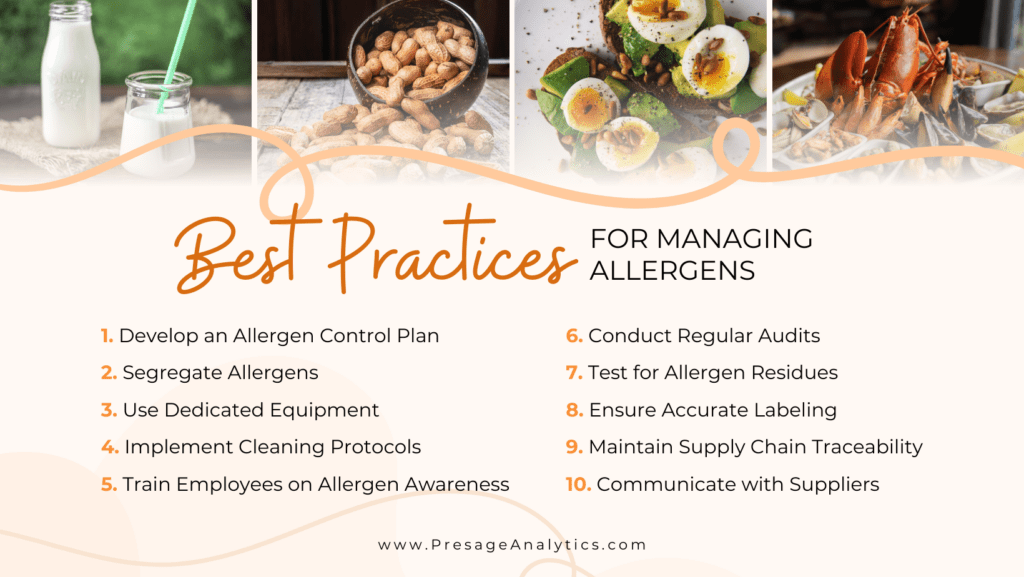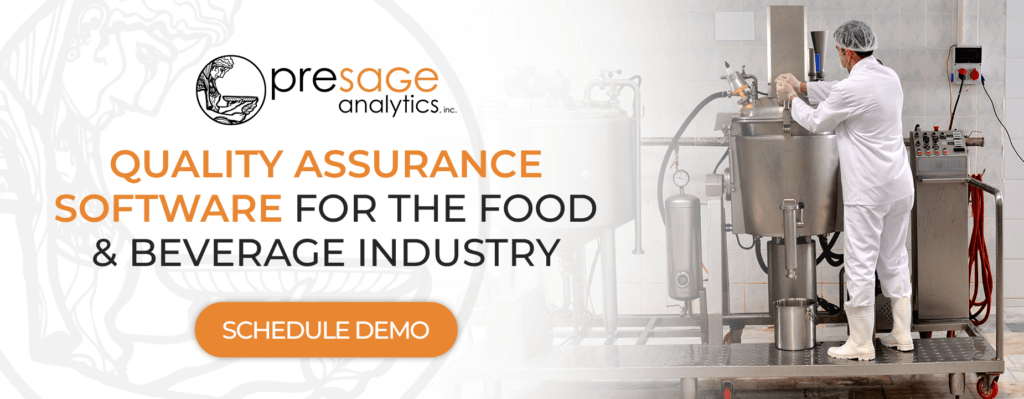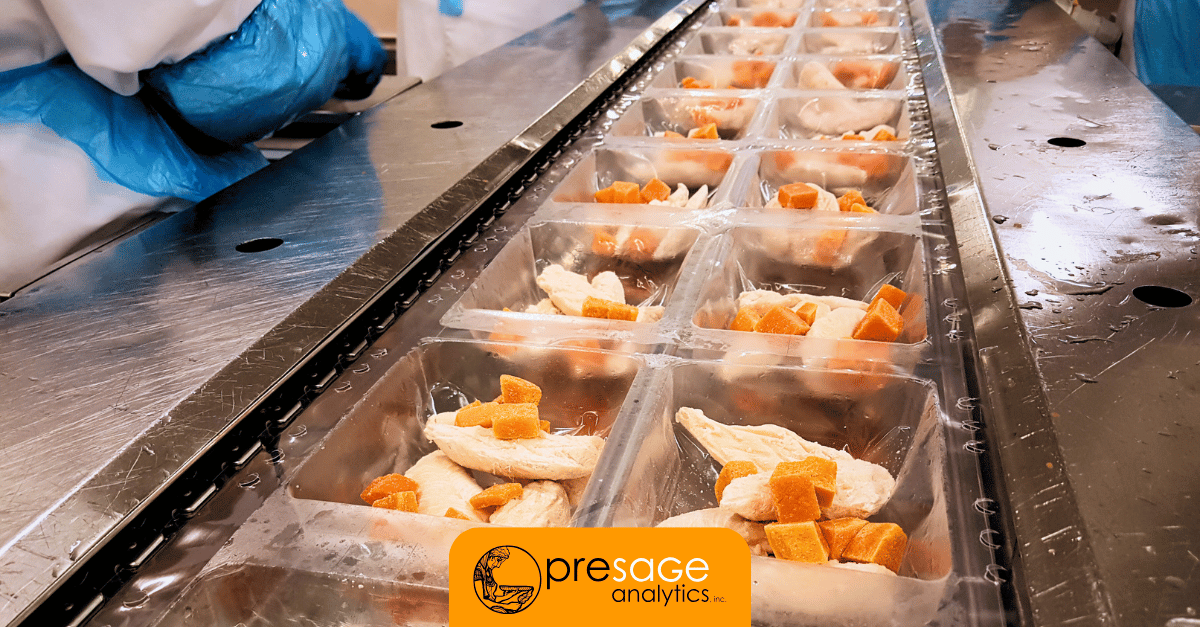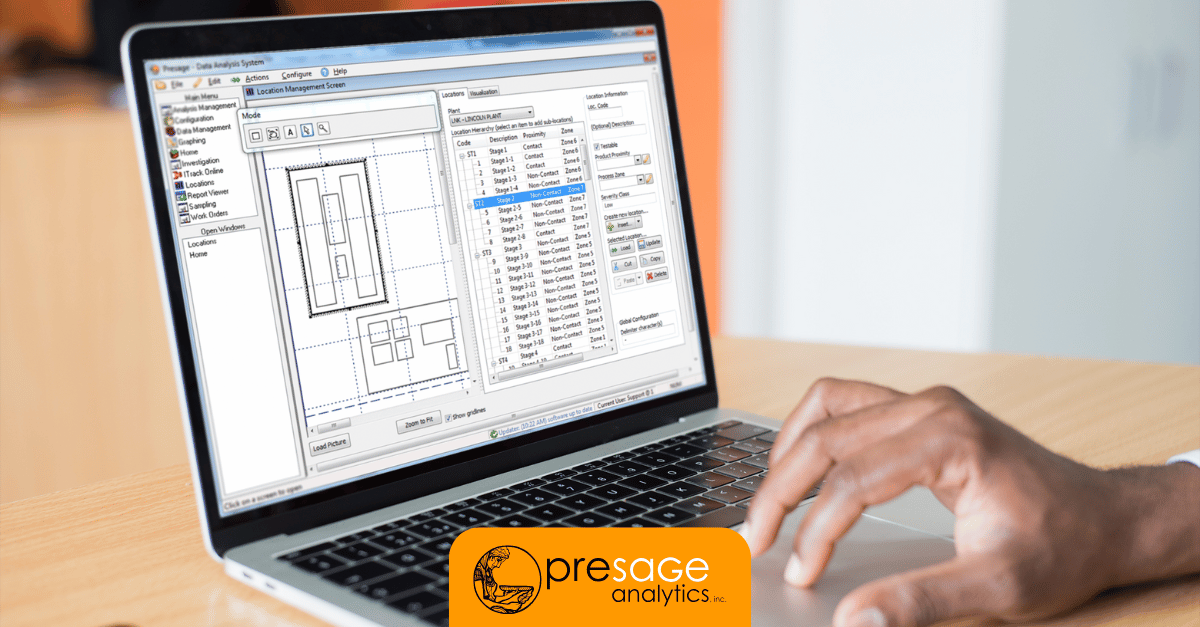Allergen Management in Food and Beverage Processing

Food allergies affect millions of people worldwide, making allergen management especially important in the industry. Companies must prioritize allergen tracking to ensure consumer safety and meet regulatory requirements. Presage Analytics offers solutions to simplify allergen management, reduce risks, and improve operational efficiency.
The Importance of Allergen Management
Food allergens can trigger severe reactions in consumers, including anaphylaxis. Failure to manage these allergens properly can lead to product recalls, loss of consumer trust, and legal consequences.
The “Big 9” (Most Common Food & Beverage Allergens)
- Milk – Found in dairy products such as cheese, butter, yogurt, and whey.
- Eggs – Common in baked goods, mayonnaise, and some processed foods.
- Peanuts – Frequently used in snacks, candies, and sauces.
- Tree Nuts – Includes almonds, walnuts, cashews, pecans, pistachios, and hazelnuts. Found in baked goods, desserts, and oils.
- Fish – Common in sauces, broths, and many processed foods.
- Shellfish – Includes shrimp, crab, lobster, and scallops. Found in soups, sauces, and seafood dishes.
- Soy – Used in soy sauce, tofu, soy milk, and many processed and packaged foods.
- Wheat – Present in breads, pasta, cereals, and other products made with flour.
- Sesame – Found in breads, bagels, crackers, sauces, and sesame oil.
Key Challenges for Managing Allergens
Companies face significant challenges when managing allergens. Cross-contact during production remains a major issue. Allergens can transfer from one product to another if proper segregation and cleaning protocols are not followed. Labeling inaccuracies also pose risks, as incorrect or incomplete labels can mislead consumers. Maintaining traceability of allergens throughout the supply chain adds another layer of complexity. Companies must track allergens from raw materials to finished products to ensure safety.

Allergen Management Best Practices
- Develop an Allergen Control Plan
- Outline procedures for handling, storing, and labeling allergens.
- Segregate Allergens
- Store allergens separately from non-allergenic ingredients to prevent cross-contact.
- Use Dedicated Equipment
- Assign specific tools and machinery for allergenic and non-allergenic products.
- Implement Rigorous Cleaning Protocols
- Clean and sanitize equipment thoroughly after processing allergens.
- Train Employees on Allergen Awareness
- Educate staff about allergen risks and proper handling procedures.
- Conduct Regular Audits
- Assess allergen control measures and update practices as needed.
- Test for Allergen Residues
- Use allergen testing kits to verify cleaning effectiveness.
- Ensure Accurate Labeling
- Clearly list allergens on packaging to inform consumers.
- Maintain Supply Chain Traceability
- Track allergens from raw materials to finished products to monitor risks.
- Communicate with Suppliers
- Confirm allergen information and changes to ingredient formulations.
Simplifying Allergen Management with Presage Analytics
Presage Analytics provides advanced tools to help food companies manage allergens effectively. The platform enables tracking and traceability of allergens, ensuring companies can monitor allergens throughout the production process. Customizable reporting simplifies compliance with regulatory requirements and customer expectations. Presage also includes tools for scheduling and verifying cleaning procedures, providing an additional layer of assurance.
Benefits of Using Presage Analytics
Presage Analytics offers a comprehensive quality management software tailored for the food and beverage industry. Key benefits include:
- Cost Savings: By identifying redundant testing and streamlining processes, it reduces labor and supply expenses.
- Time Efficiency: Accelerates data entry for quality technicians and production operators, allowing them to focus more on product quality rather than paperwork.
- Proactive Issue Resolution: Notifies stakeholders of non-conformance issues promptly, enabling quicker responses to address minor problems before they escalate.
- Enhanced Customer Relations: Improves communication and reporting, leading to better understanding of customer needs and increased satisfaction.
- Process Improvement: Enhances effectiveness in quality assurance processes, audits, and understanding of organizational quality objectives.
- Regulatory Compliance: Provides digital solutions that align with regulations and standards, ensuring audit readiness at all times.
- Customizability: Adaptable to specific business requirements, allowing alignment with unique operational needs.
- Responsive Support: Offers system configuration assistance, intelligent solutions, quick response times, and attentive customer support.

Schedule a Demo Today
Effective allergen management protects consumers and ensures compliance with food safety regulations. Presage Analytics simplifies allergen tracking, reporting, and cleaning processes, helping companies minimize risks and enhance efficiency. Schedule a demo today to learn how Presage Analytics can support your efforts and safeguard your brand.





